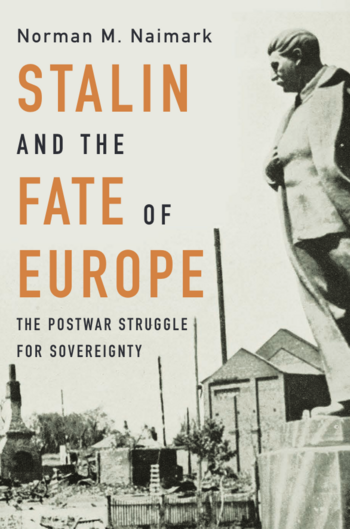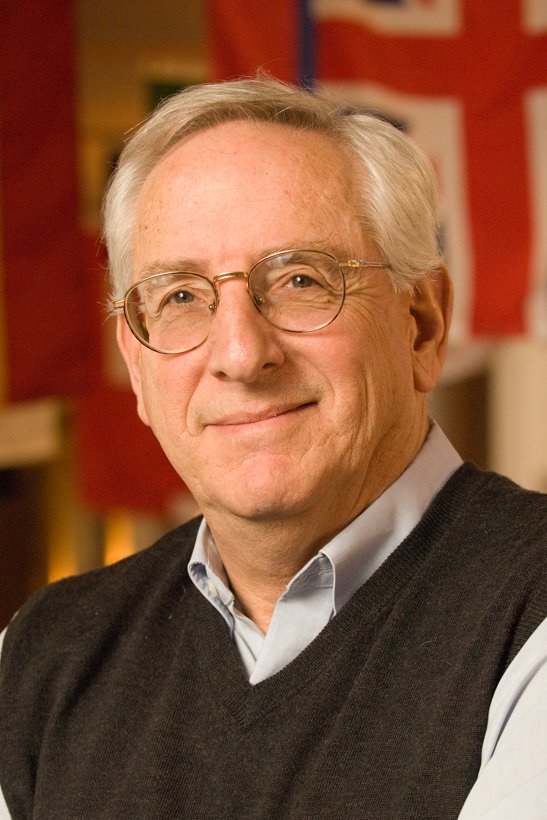Book Talk "Stalin and the Fate of Europe: The Postwar Struggle for Sovereignty" with Norman M. Naimark
Book Talk "Stalin and the Fate of Europe: The Postwar Struggle for Sovereignty" with Norman M. Naimark
Thursday, January 9, 202012:00 PM - 1:30 PM (Pacific)
Encina Hall, Second Floor, Central, C231
616 Jane Stanford Way, Stanford, CA 94305
This event is now full and we are unable to take any further reservations. However, if you would like to be added to the waitlist, please email us at sj1874@stanford.edu.

The Cold War division of Europe was not inevitable―the acclaimed author of Stalin’s Genocides shows how postwar Europeans fought to determine their own destinies.
Was the division of Europe after World War II inevitable? In this powerful reassessment of the postwar order in Europe, Norman Naimark suggests that Joseph Stalin was far more open to a settlement on the continent than we have thought. Through revealing case studies from Poland and Yugoslavia to Denmark and Albania, Naimark recasts the early Cold War by focusing on Europeans’ fight to determine their future.
As nations devastated by war began rebuilding, Soviet intentions loomed large. Stalin’s armies controlled most of the eastern half of the continent, and in France and Italy, communist parties were serious political forces. Yet Naimark reveals a surprisingly flexible Stalin, who initially had no intention of dividing Europe. During a window of opportunity from 1945 to 1948, leaders across the political spectrum, including Juho Kusti Paasikivi of Finland, Wladyslaw Gomulka of Poland, and Karl Renner of Austria, pushed back against outside pressures. For some, this meant struggling against Soviet dominance. For others, it meant enlisting the Americans to support their aims.
The first frost of Cold War could be felt in the tense patrolling of zones of occupation in Germany, but not until 1948, with the coup in Czechoslovakia and the Berlin Blockade, did the familiar polarization set in. The split did not become irreversible until the formal division of Germany and establishment of NATO in 1949. In illuminating how European leaders deftly managed national interests in the face of dominating powers, Stalin and the Fate of Europe reveals the real potential of an alternative trajectory for the continent.

Norman M. Naimark received his A.B., M.A. and Ph.D (1972) from Stanford University. He spent fifteen years as Professor at Boston University and Research Fellow at the Russian Research Center at Harvard before returning to Stanford in 1988. He is presently Robert and Florence McDonnell Professor of East European Studies in the History Department at Stanford University, and is Senior Fellow at the Hoover Institution and the Freeman-Spogli Institute. Earlier he served as Chair of the Department of History, Burke Family Director of the Bing Overseas Studies Program, and Fisher Director of Stanford Global Studies.
A selection of his books include The Russians in Germany: A History of the Soviet Zone of Germany (Harvard 1995); Fires of Hatred; Ethnic Cleansing in 20th Century Europe (Harvard 2001); Stalin’s Genocides (Princeton 2010), Genocide: A World History (Oxford 2017), and, most recently Stalin and the Fate of Europe: The Struggle for Sovereignty (Harvard 2019).
Naimark has been awarded the Officer’s Cross First Class of the German Federal Republic. He twice received the Dean’s Award for Outstanding Teaching at Stanford. He also received the Award for Distinguished Contributions to Slavic, East European, and Eurasian Studies from ASEEES in 2011-12.
Discussants:
David Holloway is the Raymond A. Spruance Professor in International History, Professor of Political Science, and Senior Fellow at FSI, Emeritus. He received his BA, MA, and PhD from the University of Cambridge. He has been co-director of CISAC (1991-1997) and director of FSI (1998-2003). He is the author of Stalin and the Bomb: the Soviet Union and Atomic Energy, 1939-1956 (Yale U. P., 1994) among other works.
Robert Rakove is Lecturer in International Relations. He received his PhD from the University of Virginia and is the author of Kennedy, Johnson, and the Nonaligned World. Rakove studies U.S. foreign policy, particularly in the Cold War era.
Amir Weiner is Associate Professor of Soviet History and the director of the Center for Russian, East European and Eurasian Studies.
Co-sponsored by the Center for Russian, East European and Eurasian Studies, and the Center for International Security and Cooperation.
